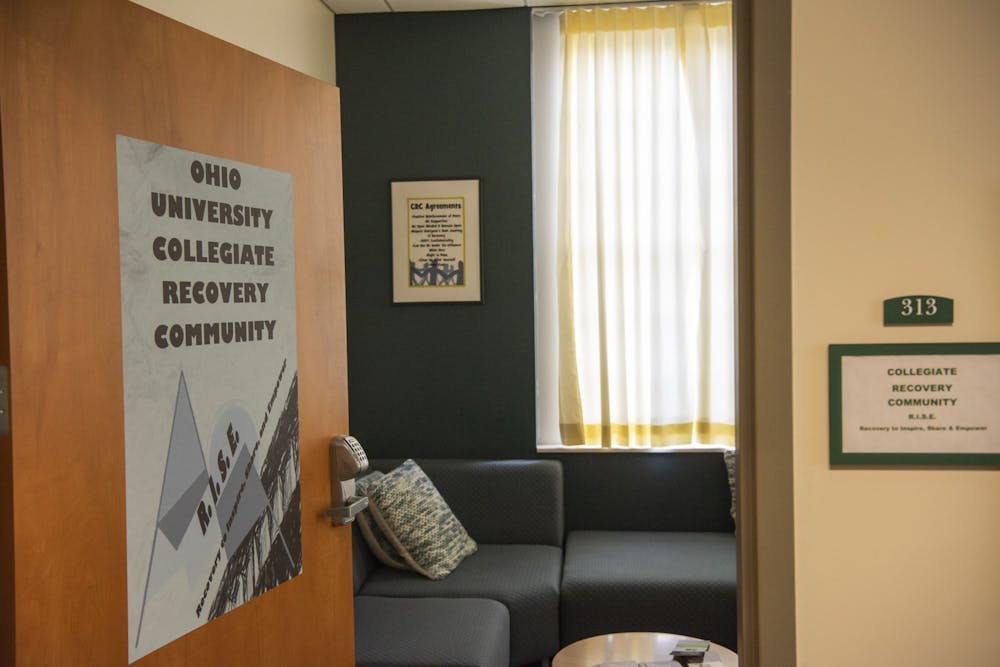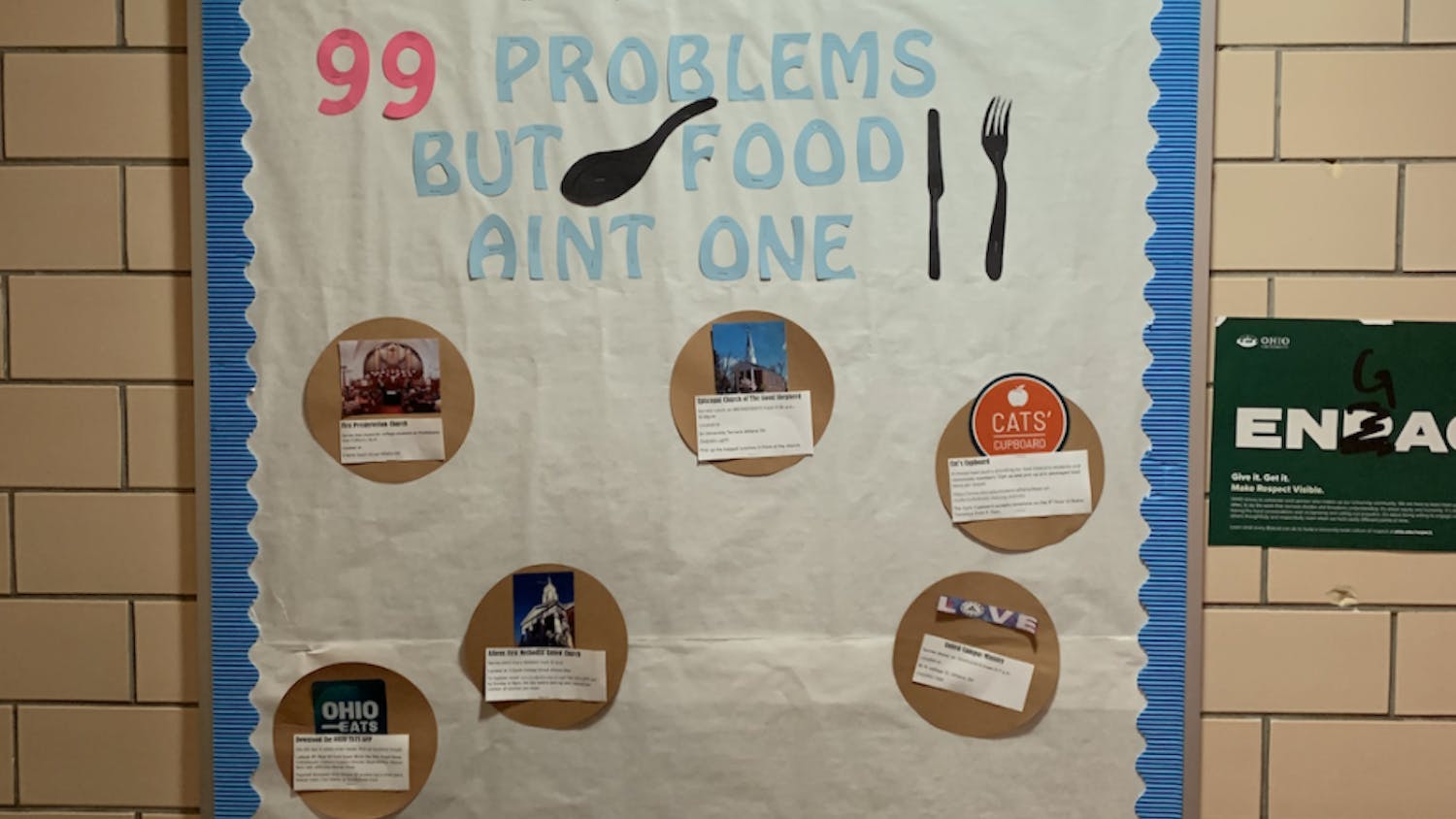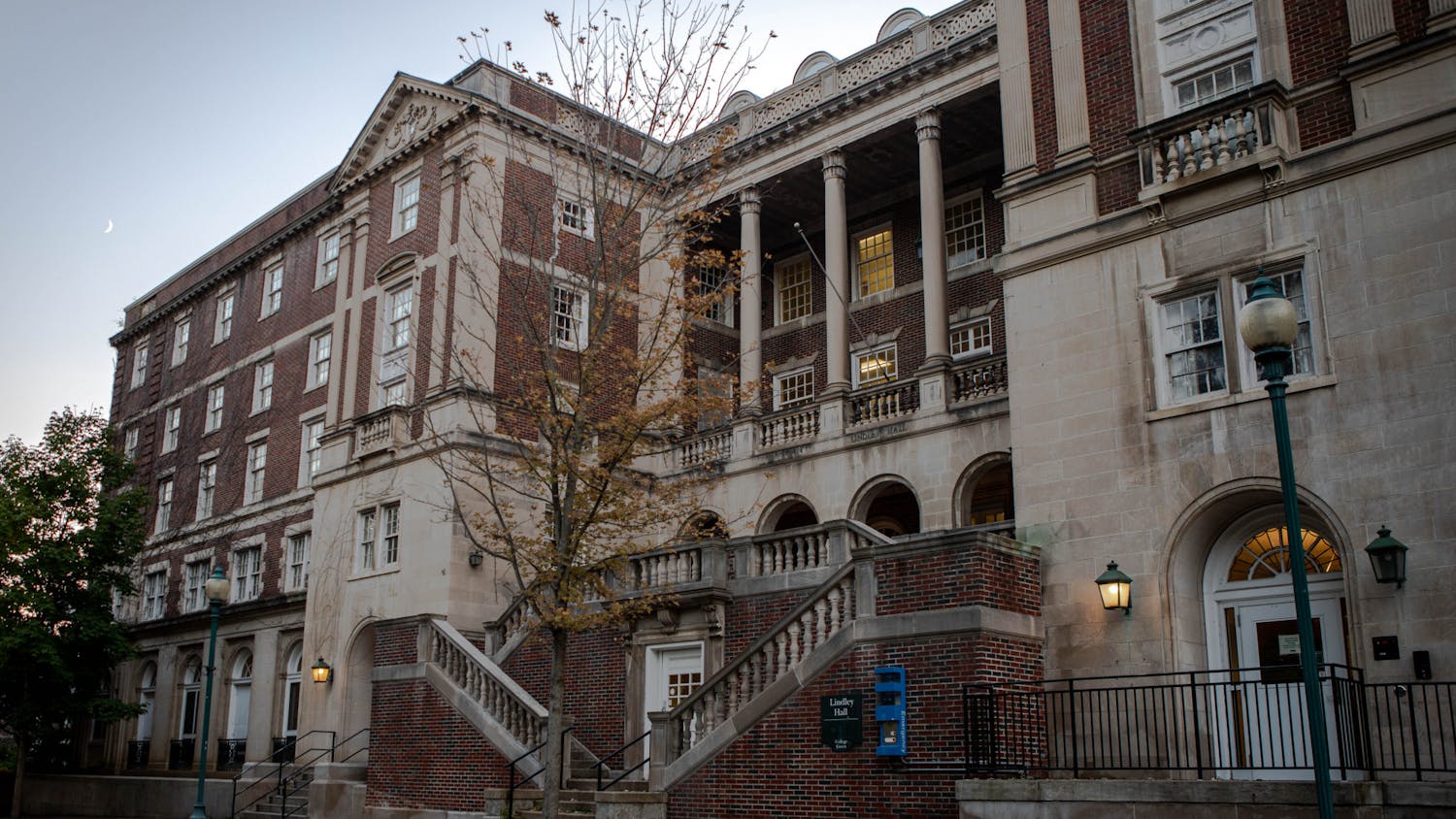Clarification appended.
Ohio University’s Collegiate Recovery Community lounge, or CRC, is situated in the eastern corner of Baker University Center. The space is small, filled with tables, a television and pamphlets with titles like “Am I An Addict?” On its door, the CRC’s mission is written: “recovery to inspire, share and empower.”
Though the CRC lounge, Baker 313, is distanced from open spaces and escalators where most university traffic occurs, it is a resource with potential to serve a large demographic impacted by substance use disorders: students.
Full-time college students are more likely to meet the criteria for having a substance use disorder than their peers not attending a university but are less likely to seek out recovery services, according to a 2019 study led by Justine W. Welsh, director of Emory Healthcare Addiction Services.
Low alcohol prices, high concentrations of bars, academic stresses, desire for peer approval, availability of drugs, Greek life, the pandemic and financial issues create additional risk factors for students to encounter substance use disorders on college campuses. Simultaneously, university culture constructs overuse of addictive substances to be relatively acceptable, said Divya Warrier, graduate assistant for Alcohol & Other Drugs Programming at OU’s Office of Health Promotion.
Use of drugs or alcohol is not inherently negative, Warrier said. However, repeated overuse of such substances can become harmful to students’ academic, health and behavioral well-being.
“A lot of times when people get addicted to something … they start losing things,” Ann Addington, coordinator of the CRC, said. “They start losing relationships, money, just trust in other people and things like that.”
OU houses a number of services aimed at addressing the needs of students with substance use disorders. The CRC hosts a weekly recovery support group called RISE; the Office of Health Promotion presents recovery ally training to groups upon request; and Counseling and Psychological Services facilitate an alcohol screening/intervention and offer some behavioral health options.
However, despite the prevalence of substance use disorders among college students, a relatively small number seek out recovery resources from OU, Addington said. Addington facilitates RISE meetings and sees between 10 and 15 students attend the support group weekly.
Both the CRC lounge and weekly support meetings provide recovering students with connections to their peers and aim to create a stigma-free atmosphere in a substance-heavy college town.
“I think the biggest thing that students get out of being in the CRC is their sense of belonging,” Addington said. “It’s really hard when you're on a college campus and trying to stay sober or not do drugs. It's almost as if you're in a hostile environment.”
The hostility and stigma that surround addiction can contribute to students not seeking out recovery resources.
“I think things like the Health Promotion Office and the Collegiate Recovery Community are almost hidden,” Warrier said. “We don't want to promote that because we don't want to admit that students have it here on our campus, and I think that kind of contributes to the stigma.”
Mental and behavioral health treatments for substance use disorders are also relatively limited at OU. For every one clinical staff member, intern, clinical graduate assistant or trainee employed by OU Counseling and Psychological Services, there are nearly 600 students who have the ability to seek out their services, according to 2021 Spring Semester enrollment data and the Counseling and Psychological Services online staff list.
“I know not only at our university but at universities nationwide that there is a greater demand for behavioral health care than universities can support or choose to support,” Rebekah Crawford, visiting professor of social and public health, said.
Substance use disorders are common within college communities, but stigma as well as undersupported and underutilized resources can create distinct challenges for students wanting to recover. Some students must even decide between recovery and education, with a number being forced to drop out.
Formal on-campus efforts such as the CRC or Counseling and Psychological Services, the latter of which has walk-in availability, provide concrete support networks for students who can access them. Warrier, Addington and Crawford also advocate the power interpersonal interactions can have in promoting health at OU, such as checking in on friends, talking about addiction in a non-judgmental way and promoting recovery resources.
“Even a small candle in a dark cave can make a lot of light,” Crawford said. “And so I think talking about it, defining it and helping people understand the social determinants that connect them to risks and vulnerability goes a really long way towards dispelling these ideas that a person only is on the hook for their own pain.”
If a student or someone they know is suffering from a substance abuse disorder, contact the OU Counseling and Psychological Services hotline at 740-593-1616 and press one or the Substance Abuse and Mental Health Service Administration hotline at 1-800-662-4357.
Clarification: A previous version of this article stated a quote from Crawford in which she said there's a six-week wait to get in to see someone for behavioral health concerns at OU. Crawford failed to mention the drop-in appointments available through Counseling and Psychological Services. This article has been updated to reflect the most accurate information.






